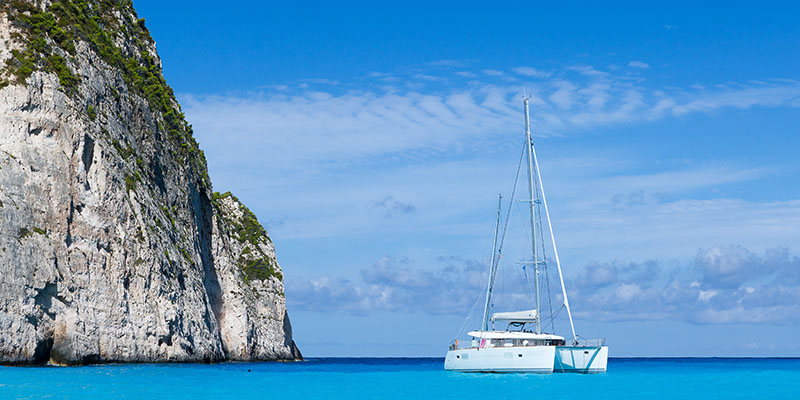Story by Andrew Holland / June 20, 2017


By now you probably have a pretty good idea of how much money you have to spend on your boat. But do you know how you will need to spend it? The price of the boat is just the first expense. Insurance, storage, maintenance are all factors that must be considered when tallying the total cost of owning a boat.
Insurance is the first of those factors that we will consider. Because insurance is a subject best left to experts, I have consulted with several. They have offered good, comprehensive information, which you can read over. Yes, it is that important to fully understand the cost, requirements, and coverage of insurance before you buy.
BoatU.S. – Boat Owners Association of The United States – is the nation’s leading advocate for recreational boaters and provides its 625,000 members with a wide array of consumer services including a marine insurance program that insures over 240,000 vessels. Their Consumer Protection Bureau offers an extensive range of articles on a variety of topics of interest to boaters. In this month’s “Ask an expert …” Scott Croft offers his tips for buying insurance.
The issue of boat insurance can be complicated, and understanding it can be confusing. But the smart boater can make the right insurance choice with these “Top Five Tips for Buying Boat Insurance” from BoatU.S., the United States’ largest recreational boat owners association:
Boat insurance can be “added on” to a homeowner’s policy, purchased from an independent insurance agent, or bought directly from a marine insurance specialist. Buying a policy through a reputable agent or directly from a marine insurance specialist is the best way to go. “Adding on” to your homeowner’s policy may be convenient, but homeowner’s policies often limit or don’t adequately provide some marine related coverage – like salvage or wreck removal. If you have to make a claim, you will appreciate a company that knows more about boats than homes.
Ask experienced boating friends for their insurance recommendations and check on the insurance carrier – the company that will actually be providing your coverage. A.M. Best ratings are the industry’s benchmark for assessing an insurer’s financial strength; look for an “A” rating (excellent) or better. State insurance regulatory agencies are also a good reference and can be found online.

An “agreed value” policy costs more up front but it potentially pays more – it will cover the stated value of the policy in the event of a total loss. For example, a total loss on a $50,000 agreed value policy would pay you $50,000. More importantly, with a partial loss an agreed value policy replaces damaged boating equipment on a “new for old” basis with no depreciation. Hence, a claim for a stolen four-year-old GPS would get you a new, comparable replacement GPS. Some repairs, however, are subject to depreciation, such as paint, canvas and aging machinery.
“Actual Cash Value” policies cost less but only pay up to the actual cash value at the time the boat or property was lost – depreciation is factored in on all losses. Actual Cash Value policies are better suited to less expensive boats or to situations where you are more concerned with liability protection and defense against lawsuits than you are with boat damage.
If the worst happens and your boat needs to be salvaged, you want to ensure that your policy covers salvage costs up to 100% of your boat’s insured value. If it covers anything less, you could end up paying salvage costs out of your own pocket. Unfortunately many homeowners and some marine insurer policies limit salvage coverage to a percentage of the boat’s total value.
For example, if you have chosen a $50,000 “agreed value” policy, you want salvage coverage up to the same amount as the boat’s agreed value – $50,000. You should not have to subtract these “salvage” dollars, or the policy’s deductible, from the total amount available to fix the damage. An actual cash value policy should have the same, with the dollar salvage limit being equal to, but separate from, the actual value of the vessel.
Some policies also have “hurricane deductibles” – a significantly higher deductible for damage to your boat caused by a hurricane. Be sure that this dollar amount is acceptable to you.
Don’t treat boat insurance like other insurance. Make sure you understand exactly what is covered as well as what isn’t covered. If the policy doesn’t make sense, ask for an explanation in laymen’s terms. [JSW’s note: Don’t sign anything until you understand it all. If they won’t explain, walk away.]
A bass boater may need fishing gear and tournament coverage. If you’re in the hurricane belt, hurricane haul-out coverage makes the decision to safely store your boat ashore that much easier as a storm approaches. If you have a fuel tank aboard, you should be concerned about fuel spill containment and clean-up coverage along with 24-hour assistance to get it done immediately, especially in light of today’s environmental protection laws. A good insurer will tailor your coverage to fit your needs, so there will be no surprises if the unexpected happens.

The process of selling our boat was made very smooth by the Multihull Company and Andrew Hodgdon in particular. Andrew helped us navigate the selling process including moving our boat from Grenada to Florida to execute the sale. We would recommend working with this company, and Andrew Hodgdon in particular, without hesitation.
Very smooth process. Chuck was great and very knowledgeable about the whole process. Im happy to have had TMC to take care of all the things i didnt know about.
Andy
We feel like we got tremendous service from Chuck. He is a total professional, knowledgeable, confident and a natural salesman. While I’m really sad to give up the boat, we are compl we are completely satisfied that Chuck sold it for us.
The Multihull Company-St Augustine, and in particular Andrew Hodgdon handled the sale of my Balance 442 Catamaran. Andrew was professional, transparent and a pleasure to do business with.
Valerie was exceptional. Her experience and the marketplace and contacts and various areas has been most beneficial.
Successful relationships cannot exist without it. At The Multihull Company we base every relationship on a firm commitment to earning and retaining our client’s trust.
Advice of any kind is valuable only when grounded in hard-won expertise. It too, must be trustworthy. Trust and expertise define the heart and soul of The Multihull Company. We are a team of skilled professionals who thrive on providing expert, trustworthy advice and service to catamaran and trimaran sailors around the globe.
Read More